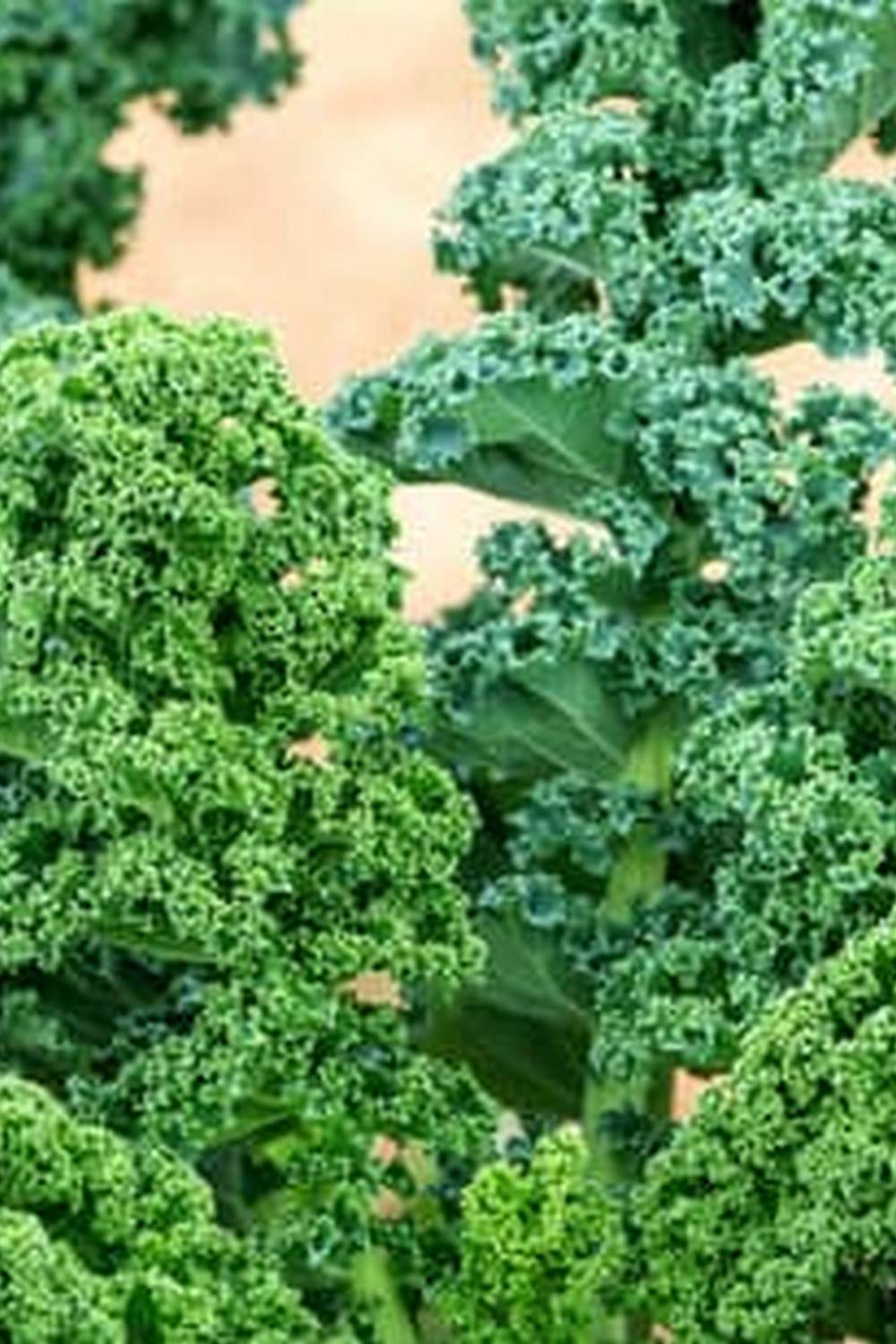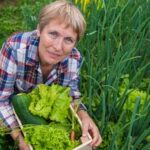Are you interested in starting your own raised vegetable garden in Brisbane? Look no further. Raised vegetable gardens are an excellent way to grow fresh produce in urban and suburban environments.
In this article, we will delve into the world of raised vegetable gardens in Brisbane, exploring the benefits, tips for choosing the right location, best vegetables to grow, step-by-step guide on building one, maintenance and care, pest and disease control, and even real-life success stories. Whether you’re a seasoned gardener or a complete beginner, there’s something for everyone as we uncover the ins and outs of raised vegetable gardening in Brisbane.
Brisbane’s climate provides a unique set of challenges and opportunities for gardeners. Raised vegetable gardens offer the perfect solution to maximize growing potential while adapting to the local environment. From finding the ideal spot for your garden to selecting the right vegetables to thrive in Brisbane’s conditions, we’ve got you covered with all the essential information you need to get started on your very own raised garden bed.
In addition to practical advice, we’ll also be showcasing real-life examples of successful raised vegetable gardens in Brisbane. With inspiring success stories from local gardeners, you can gain insight into what works best in this specific region and draw motivation from their achievements. So whether you’re looking to embark on a new gardening adventure or wanting to enhance your existing skills, read on to discover why raised vegetable gardens are a must-try in Brisbane.
Benefits of Raised Vegetable Gardens in the Brisbane Climate
Raised vegetable gardens in Brisbane offer a range of benefits that make them an ideal choice for aspiring gardeners. The unique climate of Brisbane, characterized by hot and humid summers and mild winters, provides an excellent environment for growing vegetables in raised beds.
These gardens are elevated from the ground, allowing for better control over soil quality, improved drainage, and easier access for planting and harvesting. In this section, we will explore the various advantages of raised vegetable gardens in the specific context of the Brisbane climate.
Improved Drainage and Soil Quality
One of the primary benefits of raised vegetable gardens in Brisbane is their superior drainage and soil quality. Brisbane’s heavy summer rains can lead to waterlogged soil, which is detrimental to many vegetables. Raised beds allow excess water to drain more effectively, preventing waterlogging and root rot. Additionally, gardeners have greater control over the composition of the soil in raised beds, ensuring optimal conditions for plant growth.
Warmer Soil Temperatures
In Brisbane’s mild winter climate, raised vegetable gardens offer the advantage of warmer soil temperatures. The elevated nature of these beds allows them to capture more sunlight and retain heat better than traditional ground-level gardens. This extended warmth can benefit heat-loving vegetables that may struggle in cooler temperatures, providing an extended growing season for a wider variety of crops.
Accessibility and Aesthetic Appeal
Raised vegetable gardens are not only practical but also visually appealing. The elevated design makes it easier for gardeners to access their plants without bending or kneeling, reducing strain on the back and knees. This accessibility is especially beneficial for older individuals or those with physical limitations. Furthermore, the structured appearance of raised beds adds aesthetic value to a garden space, creating a neat and organized look that can complement any outdoor area.
Overall, raised vegetable gardens are a highly advantageous option for gardening enthusiasts in Brisbane due to their ability to address the unique challenges posed by the local climate while offering additional benefits such as improved drainage, warm soil temperatures, accessibility and visual appeal.
Tips for Choosing the Right Location for Your Raised Vegetable Garden in Brisbane
When it comes to setting up a raised vegetable garden in Brisbane, choosing the right location is crucial for the success of your garden. The ideal location will provide your vegetables with the necessary sunlight, drainage, and protection from harsh weather conditions. Here are some tips for selecting the perfect spot for your raised vegetable garden in Brisbane.
Sunlight and Shade
One of the most important factors to consider when choosing a location for your raised vegetable garden is sunlight. Most vegetables require at least 6-8 hours of direct sunlight per day. Look for an area in your yard that receives ample sunlight throughout the day, especially during the morning and early afternoon. Avoid placing your raised garden bed in areas that are constantly shaded by trees or buildings.
Soil Drainage
Good soil drainage is essential for the health of your vegetables. Avoid low-lying areas or spots where water tends to collect after rain. Instead, opt for a location with well-draining soil to prevent waterlogging, which can lead to root rot and other issues.
Protection From Harsh Weather
Consider the potential impact of harsh weather conditions on your raised vegetable garden. Choose a location that offers some protection from strong winds and extreme heat, such as positioning the garden bed near a fence or building. This will help shield your plants from damage and reduce water evaporation.
By taking these tips into account, you can ensure that your raised vegetable garden in Brisbane has the best possible start for producing healthy and abundant crops.
Overall, choosing the right location for your raised vegetable garden in Brisbane plays a vital role in its success. By considering factors such as sunlight, soil drainage, and protection from harsh weather, you can set up your garden for optimal growth and productivity. So take your time to find that perfect spot and get ready to enjoy a bountiful harvest from your own backyard oasis of fresh produce.
Best Vegetables to Grow in Brisbane Raised Gardens
When it comes to choosing the best vegetables to grow in your raised vegetable garden in Brisbane, there are several factors to consider. The climate and soil conditions in Brisbane make it an ideal location for growing a wide variety of vegetables. Here are some of the best vegetables that thrive in raised vegetable gardens in Brisbane:
- Tomatoes: Tomatoes are well-suited for the warm climate of Brisbane and do particularly well when grown in raised beds. They require plenty of sunlight and regular watering.
- Beans: Both bush and pole beans are excellent choices for raised vegetable gardens in Brisbane. They are easy to grow and produce high yields in the Brisbane climate.
- Lettuce: Lettuce is a cool-season vegetable that can be grown year-round in Brisbane’s mild climate. It does well when planted in raised beds with rich, well-draining soil.
- Zucchini: Zucchini thrives in the warm, sunny conditions of Brisbane and is perfect for raised garden beds. It requires regular watering and plenty of space to spread out.
In addition to these vegetables, other great options for raised vegetable gardens in Brisbane include peppers, carrots, cucumbers, and herbs such as basil, parsley, and chives.
It’s important to consider the specific needs of each vegetable when planning your raised garden bed. Some may require trellises or support structures, while others may need extra space or specific soil conditions. By choosing the right mix of vegetables for your raised garden bed, you can create a thriving and productive garden that will yield delicious results throughout the year.
How to Build a Raised Vegetable Garden in Brisbane
Building a raised vegetable garden in Brisbane can be a great way to enjoy fresh produce and take advantage of the city’s climate. To start, you will need to choose the right location for your garden. Look for an area that receives at least six hours of sunlight per day and has access to water. You should also consider factors such as the slope of the land and any potential barriers to plant growth.
Once you have chosen a location, it’s time to build your raised vegetable garden. Begin by determining the size and shape of your garden bed. Consider using materials such as wood or stone to create the walls of the bed, making sure they are at least 12 inches high to provide adequate depth for root growth. Next, fill the bed with a nutrient-rich soil mix that is suitable for vegetable gardening.
After building the basic structure of your raised vegetable garden, it’s time to select and plant your vegetables. In Brisbane, popular vegetables for raised gardens include tomatoes, beans, lettuce, carrots, and herbs like parsley and basil. Be sure to space out your plants according to their specific requirements and follow recommended planting depths.
Finally, don’t forget about maintenance and care once your raised vegetable garden is established. Regular watering, mulching, and fertilizing will be essential for promoting healthy plant growth in Brisbane’s climate. With proper care, you can look forward to reaping a bountiful harvest from your very own raised vegetable garden in Brisbane.
Maintenance and Care of Raised Vegetable Gardens in Brisbane
Now that you have successfully built your raised vegetable garden in Brisbane, it’s important to understand the maintenance and care required to ensure a successful and bountiful harvest. Here are some essential tips for maintaining and caring for your raised vegetable garden in Brisbane:
1. Regular Watering: Given the hot and dry climate of Brisbane, it’s crucial to ensure that your raised vegetable garden receives adequate water. Consider installing a drip irrigation system or hand-watering regularly to keep the soil consistently moist, especially during the warmer months.
2. Soil Maintenance: The quality of the soil in your raised vegetable garden is vital for the health of your plants. Periodically check and maintain the pH level of the soil, as well as adding organic matter such as compost or mulch to improve soil fertility and structure.
3. Weed Control: Regularly inspect your raised vegetable garden for any weeds that may compete with your plants for nutrients and water. Remove weeds by hand or consider using organic mulch to suppress weed growth.
4. Fertilization: To ensure optimal growth and productivity, consider fertilizing your vegetables with organic fertilizers that are suitable for Brisbane’s climate. Avoid over-fertilizing, as this can lead to nutrient imbalances in the soil.
5. Pest and Disease Management: Keep an eye out for common pests and diseases that may affect vegetables grown in raised gardens in Brisbane. Employ natural pest control methods such as companion planting, attracting beneficial insects, or using organic pesticides when necessary.
By following these maintenance and care tips, you can ensure that your raised vegetable garden in Brisbane thrives throughout the growing season, providing you with an abundant harvest of delicious homegrown produce.
Pest and Disease Control for Raised Vegetable Gardens in Brisbane
One of the challenges of maintaining a raised vegetable garden in Brisbane is dealing with pests and diseases that can affect your plants. However, with the right knowledge and management practices, you can keep your garden healthy and thriving. Here are some tips for pest and disease control for raised vegetable gardens in Brisbane.
Firstly, it’s important to monitor your garden regularly for any signs of pest infestation or disease. Keep an eye out for chewed leaves, wilting plants, or discoloration, as these could be indicators of issues that need to be addressed. By catching problems early on, you can prevent them from spreading and causing extensive damage to your crops.
Another important aspect of pest and disease control is practicing good garden hygiene. Remove any dead or diseased plant material promptly to prevent the spread of diseases. Additionally, keeping the area around your raised vegetable garden clean and free of debris can help reduce hiding places for pests.
Lastly, consider implementing natural pest control methods such as companion planting or attracting beneficial insects to your garden. For example, planting marigolds can help repel certain pests, while having a diverse range of flowers can attract pollinators and predators that will help keep pest populations in check.
| Tips for Pest and Disease Control | Benefits |
|---|---|
| Regular monitoring for signs of infestation or disease | Prevents extensive damage to crops |
| Practicing good garden hygiene | Reduces spread of diseases |
| Implementing natural pest control methods | Minimizes chemical use and supports ecosystem balance |
Success Stories
When it comes to raised vegetable gardens in Brisbane, there are plenty of success stories that serve as inspiration for those looking to start their own. One such success story is the Jones family, who transformed their backyard into a thriving raised vegetable garden.
By utilizing raised beds, they were able to maximize their gardening space and grow an impressive variety of produce, from tomatoes and peppers to cucumbers and zucchinis. The Jones family’s raised vegetable garden has not only provided them with fresh, organic produce but has also become a source of pride and joy for the entire family.
Another inspiring success story is that of the Smiths, who turned their small urban balcony into a productive raised vegetable garden. Despite limited space, they were able to create several raised beds using containers and trellises, allowing them to grow herbs, salad greens, and even root vegetables like carrots and radishes. The Smiths’ innovative approach to urban gardening goes to show that with some creativity and determination, anyone can enjoy the benefits of a raised vegetable garden in Brisbane.
The Miller community garden is yet another example of a successful raised vegetable garden in Brisbane. This communal gardening space brings together residents from different backgrounds and ages, all united by their love for growing food locally. With a combination of traditional raised beds and vertical gardening techniques, the Miller community garden boasts an impressive harvest every season while fostering a sense of belonging and camaraderie among its members.
| Success Story | Details |
|---|---|
| The Jones Family | Transformed backyard into thriving raised vegetable garden |
| The Smiths | Turned small urban balcony into productive raised vegetable garden |
| The Miller Community Garden | Combines traditional raised beds with vertical gardening techniques for impressive harvests |
Conclusion
In conclusion, raised vegetable gardens are a must-try in Brisbane for anyone looking to grow their own fresh produce in the challenging climate of this beautiful city. The benefits of raised vegetable gardens in Brisbane are numerous, from improved drainage and soil health to easier maintenance and pest control. With the right location and careful selection of vegetables, residents of Brisbane can enjoy a thriving garden year-round.
Choosing the right location for your raised vegetable garden is crucial to its success, as the Brisbane climate can be quite harsh at times. By following the tips provided in this article, individuals can ensure that their garden gets the sunlight and water it needs to flourish. Additionally, by learning about the best vegetables to grow in Brisbane raised gardens and following our step-by-step guide to building a raised vegetable garden, even beginners can achieve great results.
Real-life success stories serve as inspiration for those considering starting their own raised vegetable gardens in Brisbane. By seeing what others have accomplished with their own gardens, individuals can gain confidence and motivation to embark on their own gardening journey.
With the right knowledge and care, anyone can experience the joy of harvesting their own delicious produce from a raised vegetable garden in Brisbane. So get started today and create your own success story with a beautiful raised vegetable garden.
Frequently Asked Questions
What Do I Put on the Bottom of a Raised Garden Bed Australia?
When it comes to the bottom of a raised garden bed in Australia, it’s important to use materials that allow for good drainage. Many gardeners recommend putting a layer of gravel or small rocks at the bottom to help with this.
How High Should a Raised Garden Bed Be Australia?
The ideal height for a raised garden bed in Australia can vary depending on the individual gardener’s needs and preferences. However, a common recommendation is for the bed to be at least 12 inches high to allow for good root growth and soil depth.
What Vegetables Are Best in Raised Beds?
Raised beds are great for growing a variety of vegetables, but some popular choices include tomatoes, peppers, lettuce, carrots, and radishes. These vegetables tend to do well in the deep, loose soil of raised beds and can provide a bountiful harvest.

If you’re looking to get into vegetable gardening, or are just looking for some tips on how to make your current garden better, then you’ve come to the right place! My name is Ethel and I have been gardening for years. In this blog, I’m going to share with you some of my best tips on how to create a successful vegetable garden.





